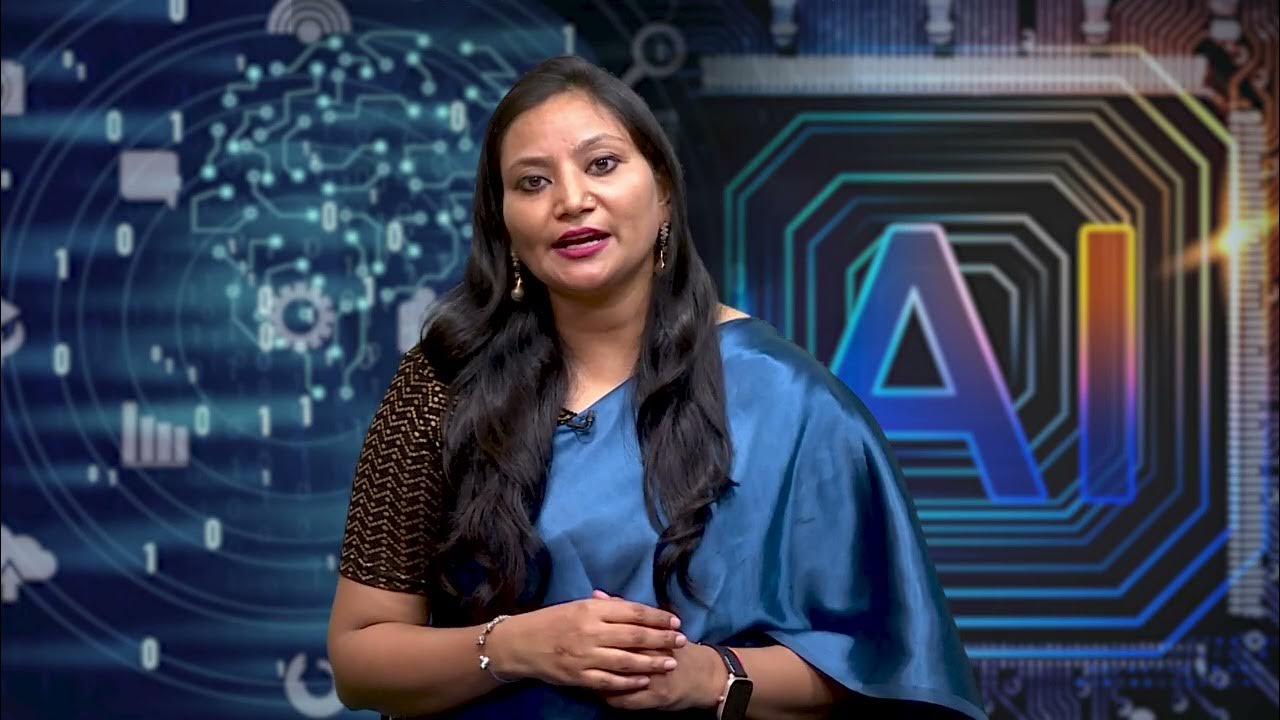Artificial Intelligence in 2 Minutes | What is Artificial Intelligence? | Edureka
Summary
TLDRArtificial intelligence (AI) refers to the field of computer science aimed at mimicking human intelligence to create systems that can function independently. While robots in popular culture might be flashy, AI's real power lies in its ability to assist with everyday tasks, like recommending movies or placing food orders. AI is poised to handle repetitive tasks, but human expertise will still be essential for building, maintaining, and tackling creative and strategic challenges. The future promises smarter AI that complements human work, emphasizing collaboration over competition.
Takeaways
- 🤖 Artificial Intelligence (AI) combines 'artificial,' meaning human-made, and 'intelligence,' the ability to think, learn, and understand.
- 🧠 The goal of AI is to mimic human intelligence, creating systems that function independently and intelligently.
- 🚀 The age of AI is here, though it might not yet resemble the futuristic depictions seen in cartoons like *The Jetsons*.
- 💻 Robots are just physical shells, while AI is the technology powering intelligent behavior inside.
- 📱 Everyday examples of AI include interactions with virtual assistants like Alexa and Netflix's recommendation algorithms.
- 🙌 AI is designed to be seamless, often operating behind the scenes without users realizing they’re interacting with it.
- 📈 AI will continue to grow in intelligence, eventually handling more complex and intelligent tasks.
- 🛠️ AI will automate repetitive, time-consuming tasks, but humans will still be needed to maintain and develop these systems.
- 🌟 The future workforce will involve a combination of humans and AI, working together to solve complex problems.
- 🎓 Learning AI through curated courses is a good way to prepare for the upcoming AI revolution.
Q & A
What does 'artificial' mean in the context of artificial intelligence?
-'Artificial' refers to anything made by humans, as opposed to natural things.
How is 'intelligence' defined in this context?
-'Intelligence' refers to the ability to understand, think, and learn.
What is artificial intelligence (AI)?
-Artificial intelligence is a broad area of computer science aimed at making machines seem like they have human intelligence, allowing them to function intelligently and independently.
What is the goal of AI?
-The goal of AI is to mimic the human brain and create systems that can think, learn, and function on their own.
Why don't we see AI in the form of flying cars or robotic maids as in cartoons like 'The Jetsons'?
-These representations are fictional. AI often powers less obvious systems, like voice assistants or recommendation algorithms, rather than physical robots.
How does AI manifest itself in everyday life?
-AI is present in technologies like voice assistants (e.g., Alexa), movie recommendation systems (e.g., Netflix), and many other areas where the AI operates behind the scenes.
What is the future expectation for AI's role in society?
-AI is expected to become more intelligent and take on roles of intelligent workers, automating repetitive tasks while humans focus on strategic and creative work.
Will AI completely replace humans in the workforce?
-No, AI is expected to complement human work rather than replace it. Humans will still be needed to build, maintain, and innovate AI systems.
What is a key advantage of AI in the workplace?
-AI helps optimize repetitive and time-consuming tasks, allowing humans to focus on more complex and creative aspects of their jobs.
How can someone get started learning AI?
-One can start by taking courses in AI, such as those offered by platforms like Edureka, which provide curated learning paths for AI technology.
Outlines

Dieser Bereich ist nur für Premium-Benutzer verfügbar. Bitte führen Sie ein Upgrade durch, um auf diesen Abschnitt zuzugreifen.
Upgrade durchführenMindmap

Dieser Bereich ist nur für Premium-Benutzer verfügbar. Bitte führen Sie ein Upgrade durch, um auf diesen Abschnitt zuzugreifen.
Upgrade durchführenKeywords

Dieser Bereich ist nur für Premium-Benutzer verfügbar. Bitte führen Sie ein Upgrade durch, um auf diesen Abschnitt zuzugreifen.
Upgrade durchführenHighlights

Dieser Bereich ist nur für Premium-Benutzer verfügbar. Bitte führen Sie ein Upgrade durch, um auf diesen Abschnitt zuzugreifen.
Upgrade durchführenTranscripts

Dieser Bereich ist nur für Premium-Benutzer verfügbar. Bitte führen Sie ein Upgrade durch, um auf diesen Abschnitt zuzugreifen.
Upgrade durchführenWeitere ähnliche Videos ansehen

IMT - AI (1) - Apa itu AI?, Sejarah, dan Penerapan AI

Artificial intelligence explained in 2 minutes: What exactly is AI?

What is Artificial Intelligence? | Quick Learner

What is Artificial Intelligence (or Machine Learning)?

Introduction to Artificial Intelligence

Can AI Match the Human Brain? | Surya Ganguli | TED
5.0 / 5 (0 votes)
